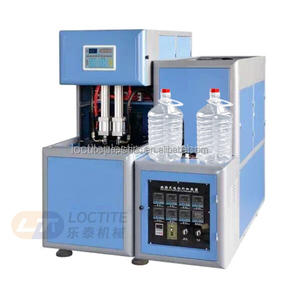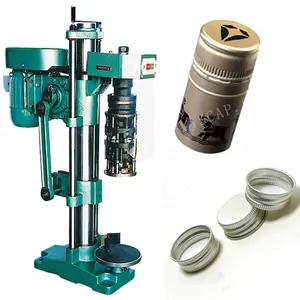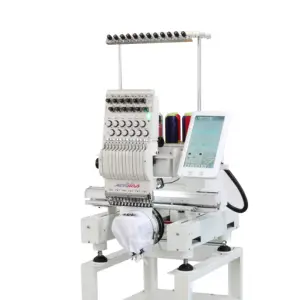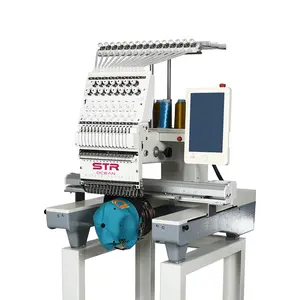What are Capping Machines
Capping machines are specialized pieces of equipment designed for the secure application of caps, lids, or closures onto containers. These machines are an essential component of the packaging process in various industries such as pharmaceuticals, food and beverage, cosmetics, and chemical manufacturing. Their primary function is to ensure that products are hermetically sealed to maintain freshness, prevent contamination, extend shelf life, and ensure product integrity during transportation and storage.
The operation of capping machines can vary depending on their design and the requirements of the specific application. However, most work on similar principles where containers are fed into the machine, a cap is placed or aligned onto the container, and a series of actions—such as pressing, screwing, or crimping—secure the cap in place. This process can be performed with varying degrees of automation, from semi-automatic machines that require more operator intervention to fully automatic systems that can cap large volumes of containers with minimal human interaction.
Capping machines are built to handle a range of container shapes and sizes, as well as different types of caps including screw caps, snap caps, cork caps, and crown caps. With advancements in technology, modern capping machines offer high precision and consistency in cap application. They often come equipped with features such as torque control to ensure that each cap is tightened to the correct specification without being under- or overtightened.
Types of Capping Machines
The variety of capping machines available caters to a diverse range of industries and packaging requirements. Here is a closer look at some common types:
Automatic Screw Capping Machine: Designed for precision and speed, this machine automatically places and tightens screw caps on bottles or jars. It's commonly used for beverages, pharmaceuticals, and household chemicals.
Spindle Capper: This type employs sets of spinning disks (spindles) to tighten screw-type caps onto containers. It’s versatile enough for various cap sizes and is used in multiple sectors.
Snap Capper: Snap cappers are made to apply snap-on caps without threads. These are typically found in personal care products or food packaging where a simple yet secure seal is required.
ROPP Cappers: Roll-On Pilfer Proof cappers create a tamper-evident seal by threading aluminum caps onto glass or plastic bottles. They're often used for sealing wine or spirits.
Corking Machines: Especially prevalent in the wine industry, these insert a cork into the bottle neck. Some models compress the cork before insertion for a tight fit.
How to Choose Capping Machines
Selecting the right capping machine requires careful consideration of several factors:
Cap Type and Size: Different capping machines are compatible with different types of caps (screw, snap-on, ROPP, etc.) and sizes. Your choice should align with the type of closure used for your product.
Container Characteristics: The shape, size, and material of your container will influence which capping machine will work best for you.
Production Volume: Assess your volume needs; higher production lines may necessitate fully automatic machines for efficiency.
Integration with Existing Equipment: Consider how the capping machine will fit within your current production line. It should integrate seamlessly with other packaging machinery.
Customization Needs: Some products might require customized capping solutions. Ensure that the supplier can provide modifications that meet your specific requirements.
After-Sales Support: Look for suppliers who offer reliable after-sales support such as technical assistance and parts servicing.
Best Capping Machines on Alibaba.com
Alibaba.com stands as a global leader in connecting businesses with a comprehensive array of commercial products including state-of-the-art capping machines suitable for various industries ranging from food production to pharmaceuticals. With an extensive network of suppliers offering machinery equipped with core components like PLC systems and high-quality motors, Alibaba.com simplifies the sourcing process by presenting an array of options tailored to meet diverse operational demands.
Alibaba's platform emphasizes ease-of-use with features designed for convenient mobile purchasing and communication in local languages. Businesses looking to invest in reliable capping machinery will find Alibaba.com's user-generated content invaluable in making informed decisions. Furthermore, services such as Trade Assurance ensure that payments remain protected until delivery is completed.
The vast selection on Alibaba.com encompasses semi-automatic to fully automatic machines promising flexibility in manufacturing processes across different capacities. This comprehensive marketplace caters to an international clientele seeking advanced machinery solutions without compromising on service life or productivity—illustrating why Alibaba.com is an ideal destination for sourcing commercial capping equipment.
Common FAQs for Capping Machines
What types of capping machines are available for different industries?
There is a wide range of capping machines suitable for various industries, including automatic screw capping machines for precision capping, spindle cappers for versatility with screw-type caps, snap cappers for snap-on caps commonly used in personal care products, ROPP cappers for tamper-evident sealing on bottles, and corking machines primarily used in the wine industry.
How do I determine the best type of capping machine for my business?
To determine the best capping machine for your business, consider the type and size of caps you use, the characteristics of your containers, your production volume, how the machine will integrate with your existing equipment, any customization needs you may have, and the level of after-sales support provided by the supplier.
Can capping machines handle different sizes and shapes of containers?
Yes, many capping machines are designed to handle a variety of container sizes and shapes. It's important to check with the manufacturer or supplier to confirm that the machine you're considering is compatible with your specific container dimensions and geometry.
Are there fully automatic capping machines available?
Yes, fully automatic capping machines are available and are ideal for high-volume production lines. These machines require minimal operator intervention and can significantly increase efficiency and consistency in the capping process.
What should I consider when integrating a new capping machine into my existing production line?
When integrating a new capping machine into an existing production line, consider factors such as compatibility with current packaging equipment, required modifications to the production space or process flow, and any additional training that your staff may need.
How important is the material of construction for a capping machine?
The material of construction is very important as it affects the durability, sanitation, and suitability for specific environments. Stainless steel is commonly used for its resistance to corrosion and ease of cleaning, making it ideal for food, beverage, and pharmaceutical applications.
Is it possible to get a customized capping machine based on my specific requirements?
Many suppliers offer customized capping machines to meet unique requirements. Customization can include adjustments to handle specific cap types or sizes, changes to accommodate unusual container shapes, or modifications to integrate with specialized production lines.
How does the after-sales service impact my choice of a capping machine?
After-sales service is crucial as it ensures ongoing support for technical issues, maintenance needs, and spare parts availability. Choosing a supplier with robust after-sales service can minimize downtime and maintain productivity in the long run.
What are some key selling points I should look for in a capping machine?
Key selling points to look for in a capping machine include ease of operation, high accuracy during the capping process, a long service life indicating durability, high productivity rates for efficient operations, and features like multifunctionality or automation that can add value to your production line.
Can semi-automatic capping machines be upgraded to fully automatic systems in the future?
Upgrading from a semi-automatic to a fully automatic system depends on the design of the machine and the capabilities offered by the manufacturer. Some systems may allow for upgrades; however, it's best to discuss this with your supplier before purchasing.

















































 浙公网安备 33010002000092号
浙公网安备 33010002000092号 浙B2-20120091-4
浙B2-20120091-4